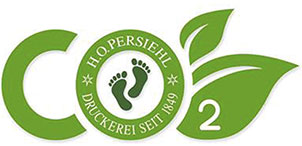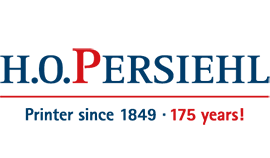Sustainability
Responsibility for the environment and our employees
As a family-owned company, we remain committed to placing our business in the hands of the next generation and preserving the environment for generations to come. From development to delivery, each and every one of our employees is working on sustainable solutions in order to have the least amount of impact on nature and the environment.
A high level of industrial safety is a matter of course for us. We promote a healthy and committed workplace culture and encourage a harmonious work-life balance. Through social audits such as SMETA, corporate ethics are transparently and independently evaluated.
|
|
|
| Material Efficiency and Waste Prevention
The aim of our ISO 14001-certified environmental management is to avoid waste, which starts from the very outset: that is to say, during the consultation, development, and planning stages of our products. The mindful use and conservation of raw materials is applied throughout the entire process: we advise our customers with regard to material, functionality, and finishing, while accounting for their actual environmental impact. Not one gram is too heavy, not one cubic centimeter is too much, not one composting period is too prolonged. It is in this way that we try to avoid waste wherever possible. Thanks to intensive coordination with our certified waste management specialists, over 90 percent of any residual waste is recycled. Should our customers require composite materials such as cardboard and plastic, we also engage – depending on their use – in sustainable alternatives from plant-based raw materials. |
|
|
|
|
| FSC® and PEFC
Over 90 percent of our paper and cardboard substrates come from FSC® or PEFC-certified forestry. As early as 2007, H.O.Persiehl became certified and is one of the first three certified folding box manufacturers in Germany. |
|
|
|
|
| Recycled Cardboard for Food Items
Foodboard®, MB12, and Food Plus are new developments that now permit the use of recycled cardboard in direct contact with food items. In comparison to more conventional printing substrates in the food industry, these innovative materials provide sustainable protection for the environment and forests. H.O.Persiehl holds the necessary credentials as an approved downstream user. The use of these materials enables our customers to position themselves effectively in the sustainability market sector. |
|
|
|
|
| Plant-Based Printing Inks
Most of our printing is carried out using low-migration, plant-based printing inks. These contain neither alcohol nor mineral oil and are more easily recycled than traditional inks. We collaborate closely with our suppliers to further optimize the degradability of inks and coatings. |
|
|
|
|
| Cradle to Cradle® – Printing Ink
Innovation for our customers! The Cradle to Cradle® principle is based on closed cycles that generate no waste and conserve valuable raw materials. This means that the materials used in the printed product are returned to a biological cycle. Cradle to Cradle® advocates environmentally safe and recyclable materials, regenerative forms of energy, responsible water use, and social engagement strategies. By request, we produce with Cradle to Cradle® ink from Hubergroup – the only internationally certified ink manufacturer. With the production of such certified print products, our clients set their sights on the markets of the future. Our automatic ink metering system produces Cradle-to-Cradle® inks directly on our premises with just-in-time manufacturing. |
|
|
|
|
| Health and Sustainable Materials
We test our raw materials for questionable ingredients and, whenever necessary, identify suitable substitutes that are more suitable for both health and the environment. Through these efforts, we have been able to reduce the proportion of hazardous substances to less than 2 percent. |
|
|
|
|
| Climate-Neutral Production
We track our energy consumption according to internationally recognized standards and are able to calculate the CO2 footprint per article. Our customers have the opportunity to offset their CO2 emissions by participating in climate protection projects. Upon request, they will receive a certificate. |
|
|
|
|
CO2-Emissions Management
|
|


